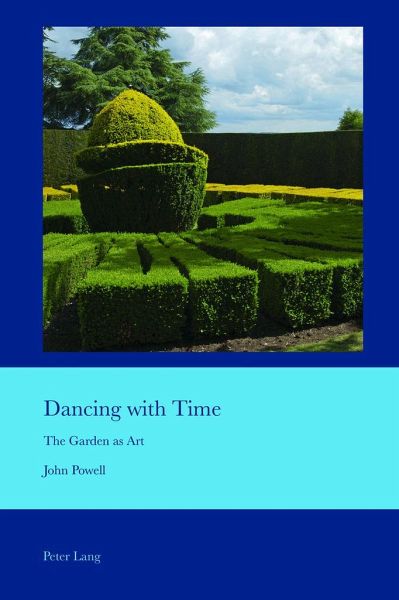
Dancing with Time
The Garden as Art
Herausgegeben: Bullen, J. B.
Versandkostenfrei!
Versandfertig in 6-10 Tagen
71,95 €
inkl. MwSt.

PAYBACK Punkte
0 °P sammeln!
Gardens provoke thought and engagement in ways that are often overlooked. This book shines new light on long-held assumptions about gardens and proposes novel ways in which we might reconsider them. The author challenges traditional views of how we experience gardens, how we might think of gardens as works of art, and how the everyday materials of gardens - plants, light, water, earth - may become artful.The author provides a detailed analysis of Tupare, a garden in New Zealand, and uses it as source material for his analysis of the philosophical issues art gardens raise. His new account of ga...
Gardens provoke thought and engagement in ways that are often overlooked. This book shines new light on long-held assumptions about gardens and proposes novel ways in which we might reconsider them. The author challenges traditional views of how we experience gardens, how we might think of gardens as works of art, and how the everyday materials of gardens - plants, light, water, earth - may become artful.
The author provides a detailed analysis of Tupare, a garden in New Zealand, and uses it as source material for his analysis of the philosophical issues art gardens raise. His new account of gardens highlights the polymodal, multi-sensual, and improvisatory character of the garden experience, it offers an ontological comparison between gardens and humans and other animals, and it explains how identical plants, and arrangements of plants, may be mundane when encountered beyond the garden but artful, meaningful, and aesthetically valuable when experienced withinit.
The author provides a detailed analysis of Tupare, a garden in New Zealand, and uses it as source material for his analysis of the philosophical issues art gardens raise. His new account of gardens highlights the polymodal, multi-sensual, and improvisatory character of the garden experience, it offers an ontological comparison between gardens and humans and other animals, and it explains how identical plants, and arrangements of plants, may be mundane when encountered beyond the garden but artful, meaningful, and aesthetically valuable when experienced withinit.














